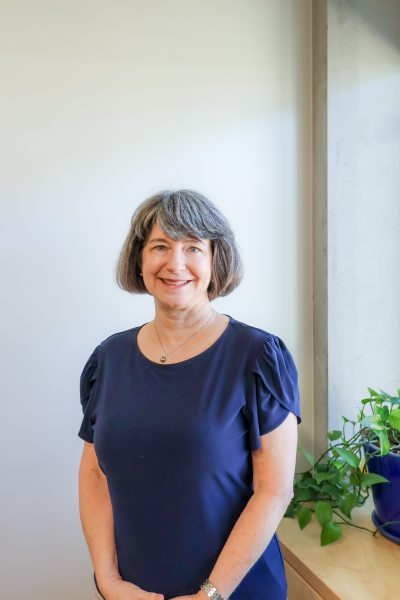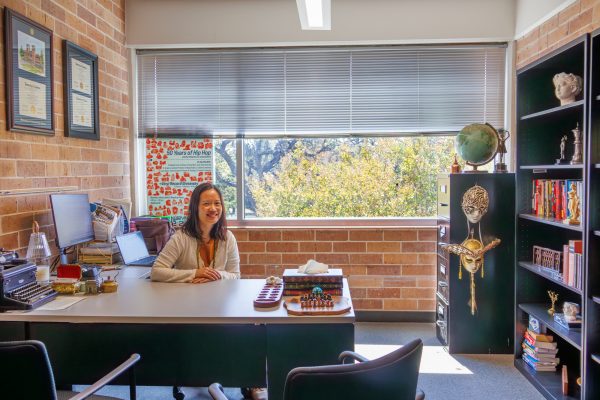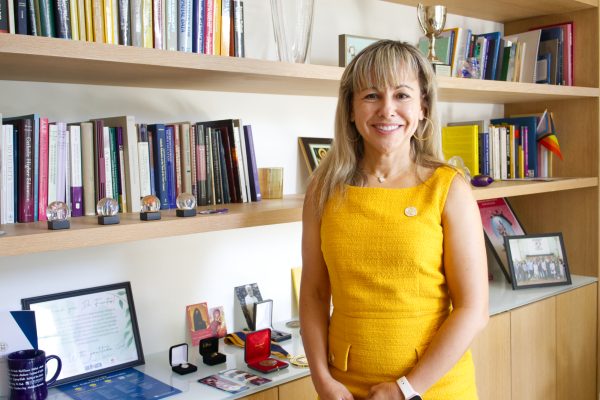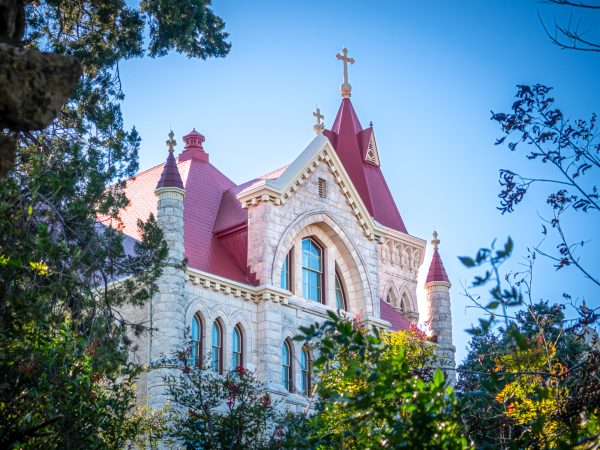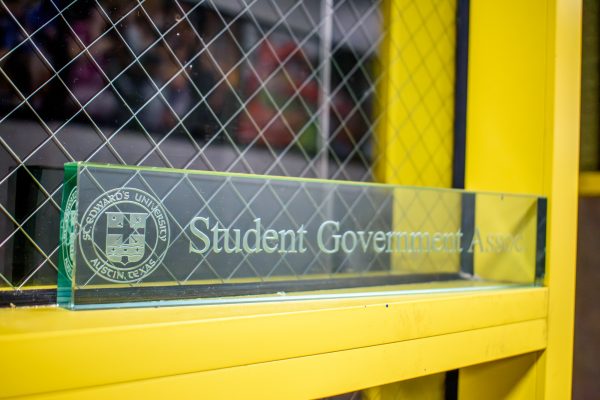Walking the line, university takes on gay rights issue
Recent events have shown that St. Edward’s University is faced with the conundrum of embracing student diversity while at the same time keeping true to Catholic teachings.
The university has particularly found itself in a tight spot when it comes to lesbian, gay, bisexual, and transgender issues. This was evident on Aug. 31, when the university denied a request from Equality Texas, an LGBT advocacy group, to participate in the school’s nonprofit fair. Perhaps no on-campus organization better illustrates the university’s challenge to both uphold Catholicism and promote diversity than one of its own student groups, Promoting Respect, Inclusion, Diversity and Empowerment (PRIDE). PRIDE is a support group for gays, lesbians and transgendered students.
Father Rick Wilkinson, C.S.C., the director of Campus Ministry, met with members of PRIDE in a forum on Sept. 13 to explain that Equality Texas was rejected from the nonprofit fair due to its support of same-sex marriage.
Wilkinson said it was his decision to deny Equality Texas participation in the Sept. 15 nonprofit fair, a Campus Ministry-sponsored event. He came to this conclusion after viewing the Equality Texas website.
“The page on same-sex marriage is in direct conflict with Catholic teachings,” Wilkinson said.
Sophomore Andrew Guerrero, PRIDE’s current president, contacted Campus Ministry after meeting with PRIDE’s executive board. Campus Ministry agreed to set up a forum to discuss the decision.
The forum included a speech by Guerrero, a response by Wilkinson and a discussion involving the students, faculty and staff present.
Guerrero opened the forum with a speech in which he said he had been approached by both students and faculty who were disappointed and hurt by the decision to deny Equality Texas participation in the nonprofit fair.
Wilkinson said he wanted to emphasize the importance of PRIDE as an organization to promote education and an end to discrimination against LGBT students.
“We want you to feel safe,” he said. “If you feel discriminated against, Student Ministry should be a place where you can go.”
Wilkinson said, however, that there is a line where education becomes advocacy—a line that Campus Ministry cannot cross. He said that although he misunderstood that Equality Texas is in fact a nonprofit organization, ultimately the group’s support of same-sex marriage was the reason for declining its offer.
“[Equality Texas] supports same-sex marriage in a very public way,” he said. “There were other issues too, but that one was much more glaring.”
Wilkinson said Campus Ministry is put in a difficult position when it struggles to respect student diversity and uphold Catholic teachings, especially when addressing LGBT issues on campus.
“We have been called homophobic [for the nonprofit fair decision] … we have also been called un-Catholic because we support gay and lesbian students on campus,” he said. “There are always questions as to where the boundaries are.”
In the discussion that followed, students, faculty and staff voiced their opinions and asked Wilkinson questions about what PRIDE can do within these boundaries.
Grace Maverick, a freshman member of PRIDE, began the question-and-answer session.
“If there was an organization that didn’t support same-sex marriage, could they theoretically be involved [in the nonprofit fair]?” she asked.
Wilkinson said his initial reaction would be yes, but he would have to look into the group’s mission statement to verify that it does not advocate any belief that is in conflict with Catholic teachings.
Some students and faculty voiced their opinions, challenging the idea that PRIDE is treated the same as all of the other recognized on-campus organizations.
Guerrero said a rough description of PRIDE’s planned activities for the year must go through Student Life and Campus Ministry before the events are approved.
“The process we have right now … it’s making our members uncomfortable,” Guerrero said.
Professor Alex Barron, PRIDE’s faculty advisor, said that because PRIDE requires special event approval, it is held to a different standard than other groups.
“We [St. Edward’s] are not standing against discrimination if we have different standards for different organization,” Barron said. “That’s the definition of discrimination.”
Senior Catherine Degen said that last year, the St. Edward’s Unity Coalition (which partnered up with another organization to become Social Justice and Service Outreach) asked to show an educational film about sex change operations. She said the request was denied, yet the University Programming Board was able to show the film “The Hangover,” which includes topics that are directly in conflict with Catholic teachings, such as violence and crude sexual content.
“This is one of these issues where different groups are held to different standards,” Degen said.
Wilkinson said he did not know anything about “The Hangover” being shown.
Although some forum attendees voiced their complaints, others acknowledged Campus Ministry’s awkward position. Both Barron and Guerrero said that they understand the bind Campus Ministry is in.
“I’ve always understood Campus Ministry’s position on this,” Guerrero said. “I understand that there’s a limitation on what I can do.”
Wilkinson and Maverick, as well as other PRIDE members, discussed plans for purely educational events that the group might be allowed to host, such as a Day of Silence to educate the university at large about discrimination against LGBT students.
Sophomore Mary Cartwright, PRIDE’s event coordinator, expressed a desire that the event approval process become “more streamlined” in the future.
Wilkinson agreed and said Campus Ministry would help in any way that it can.
Guerrero said there is room for improvement in PRIDE’s interactions with Campus Ministry and the university in general, but he is optimistic.
“This forum was an opening for more interactions,” Guerrero said after the forum. “It’s a conversation that’s going to need to be ongoing.”
Some of St. Edward’s faculty has also spoken out against the university’s decision.
English Professor Tim Green has began circulating a petition that objects to the equality Texas decision.
The petition also calls for a university wide dialogue to clarify the relationships between Catholic teaching, academic freedom, human rights, and social justice.
“For some, the decision … implies that the university (including its faculty) does not seek social justice for all nor wish to serve a culturally diverse student body,” Green said.

